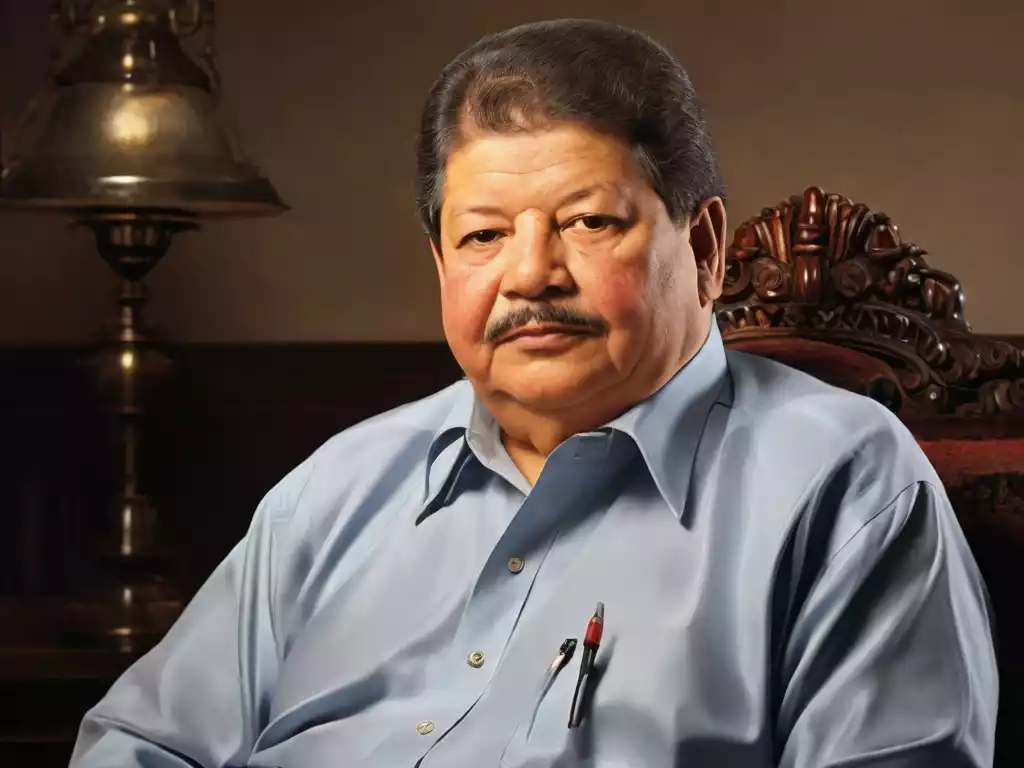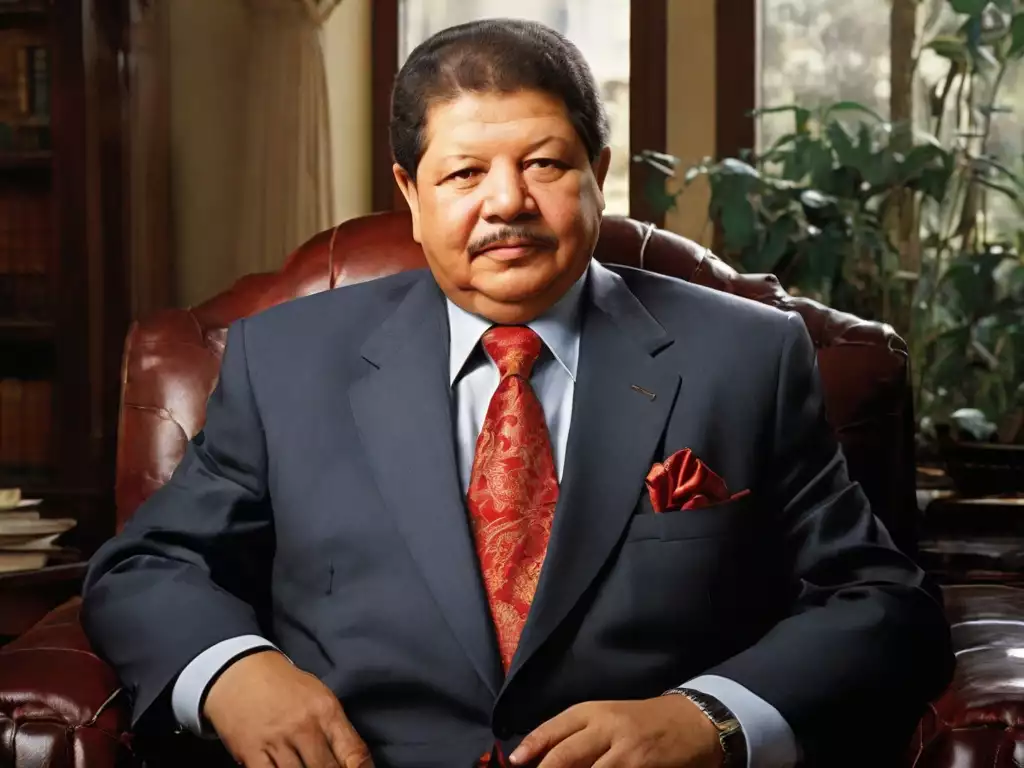Ahmed Zewail, the Egyptian and American chemist, is widely recognized as the "father of femtochemistry" and a Nobel Laureate in Chemistry. His groundbreaking work on femtochemistry, the study of chemical reactions on incredibly short time scales, revolutionized the field of chemistry. With his rapid laser technique, known as femtosecond spectroscopy, Zewail provided scientists with unprecedented insights into the behavior of atoms during chemical reactions.
The Life and Inventions of Nikola Tesla
Born in Damanhur, Egypt, on February 26, 1946, Zewail pursued his passion for chemistry, earning his Bachelor's and Master's degrees from Alexandria University. He later completed his PhD at the University of Pennsylvania, where he embarked on his pioneering research in femtochemistry. Zewail's contributions extended beyond femtochemistry, as he also made significant advancements in ultrafast electron diffraction.

Not only was Zewail a distinguished scientist, but he was also involved in political work, serving as a science envoy to Muslim-majority countries. Throughout his illustrious career, he garnered numerous accolades, including the prestigious Nobel Prize in Chemistry in 1999, making him the first Egyptian and Arab to receive such an honor in a scientific field.
Sadly, Ahmed Zewail passed away on August 2, 2016, at the age of 70. However, his revolutionary discoveries and inventions continue to shape the scientific community. Zewail's legacy lives on through his establishment of Zewail City of Science and Technology in Cairo and the continued applications of femtosecond spectroscopy in various fields, such as catalysts, molecular electronic components, life processes, and medicine production.
Introduction to Ahmed Zewail
Ahmed Zewail, an Egyptian and American chemist, is widely recognized as the "father of femtochemistry." His groundbreaking research in this field earned him the prestigious Nobel Prize in Chemistry in 1999, making him the first Egyptian and Arab to win a Nobel Prize in a scientific discipline. Throughout his illustrious career, Zewail made significant contributions to the study of chemical reactions on extremely short time scales, revolutionizing our understanding of molecular dynamics.
Early Life and Education
Born on February 26, 1946, in Damanhur, Egypt, Ahmed Zewail embarked on his scientific journey with a strong foundation in chemistry. He obtained his Bachelor's and Master's degrees in chemistry from Alexandria University before pursuing his PhD at the University of Pennsylvania. It was during his doctoral studies that Zewail began delving into the realm of ultrafast chemistry, setting the stage for his groundbreaking discoveries.
Pioneering Work in Femtochemistry
Zewail's key contributions lie in the field of femtochemistry, which involves studying chemical reactions that occur within femtoseconds (one quadrillionth of a second). Through his innovative use of rapid laser techniques, Zewail developed a method called femtosecond spectroscopy, allowing scientists to observe and analyze the intricate movements of atoms during chemical reactions. This breakthrough opened new avenues for understanding the fundamental processes that govern chemistry on a molecular level.
Nobel Prize and Recognition
In recognition of his groundbreaking work, Ahmed Zewail was awarded the Nobel Prize in Chemistry in 1999. This prestigious accolade solidified his status as a pioneer in the field of femtochemistry and brought global attention to the significance of studying chemical reactions on ultrafast time scales. Throughout his career, Zewail received numerous other awards and honors, further cementing his legacy as a leading figure in the world of chemistry.
Beyond Science: Political Engagement and Legacy
Ahmed Zewail's influence extended beyond the realm of scientific research. He actively engaged in political work, serving as a science envoy to Muslim-majority countries. Zewail recognized the importance of promoting scientific collaboration and understanding across borders, using his expertise to foster dialogue and cooperation.
Tragically, Ahmed Zewail passed away on August 2, 2016, at the age of 70. However, his legacy lives on through his profound contributions to chemistry and his enduring impact on the scientific community. To honor his vision and dedication, Zewail founded Zewail City of Science and Technology in Cairo, a center of excellence for scientific research and education.
Applications and Significance
The development of femtosecond spectroscopy, pioneered by Ahmed Zewail, has had far-reaching implications in various fields. This revolutionary technique has found applications in catalysis, molecular electronic components, understanding life processes, and even the production of medicines. By gaining unprecedented control over chemical reactions, scientists can now design more efficient catalysts, develop advanced electronic devices, and unravel the intricacies of biological systems.
In conclusion, Ahmed Zewail's groundbreaking work in femtochemistry revolutionized our understanding of chemical reactions on ultrafast time scales. His contributions, recognized by the Nobel Prize in Chemistry, have paved the way for advancements in various scientific disciplines. Through his legacy and the institutions he established, Zewail continues to inspire future generations of scientists to push the boundaries of knowledge and make meaningful contributions to society.
Early Life and Education
Ahmed Zewail, an Egyptian and American chemist, was a trailblazer in the field of femtochemistry. Born on February 26, 1946, in Damanhur, Egypt, Zewail went on to become known as the "father of femtochemistry" for his groundbreaking work in studying chemical reactions on very short time scales.
Zewail's journey in the world of chemistry began at Alexandria University, where he obtained his Bachelor's and Master's degrees in chemistry. He then pursued his passion for research and completed his PhD at the University of Pennsylvania.
The Pioneer of Femtochemistry
Zewail's key contributions lie in the field of femtochemistry, where he developed a rapid laser technique known as femtosecond spectroscopy. This groundbreaking technique allowed scientists to observe and study the behavior of atoms during chemical reactions with unprecedented precision. By capturing the incredibly fast movements of atoms and molecules on a timescale of femtoseconds (one quadrillionth of a second), Zewail provided valuable insights into the fundamental processes governing chemical reactions.
Through his work, Zewail enabled scientists to gain more control over chemical reactions and opened the door to countless possibilities in various fields. His discoveries in femtosecond spectroscopy have applications in catalysts, molecular electronic components, life processes, and even medicine production.
Nobel Prize and Recognition
Zewail's contributions to the field of femtochemistry did not go unnoticed. In 1999, he was awarded the Nobel Prize in Chemistry for his groundbreaking work. He became the first Egyptian and Arab to receive a Nobel Prize in a scientific field. This prestigious honor recognized his immense contributions to advancing our understanding of chemical reactions and paved the way for further advancements in the field.
Throughout his illustrious career, Zewail received numerous awards and honors for his groundbreaking research. His work not only revolutionized the field of chemistry but also inspired a new generation of scientists to pursue their passion for understanding the intricacies of the natural world.
Beyond Chemistry
Aside from his scientific achievements, Zewail was also actively involved in political work. He served as a science envoy to Muslim-majority countries, using his expertise to promote scientific collaboration and education.
In addition to his scientific and political endeavors, Zewail founded Zewail City of Science and Technology in Cairo, Egypt. The institution serves as a hub for scientific research and innovation, aiming to foster scientific excellence in the Arab world and beyond.
Legacy and Impact
Ahmed Zewail's contributions to the field of chemistry and his dedication to advancing scientific knowledge have left an indelible mark on the scientific community. His pioneering work in femtochemistry has paved the way for countless advancements and applications in various fields. Zewail's legacy continues to inspire and motivate scientists worldwide to push the boundaries of knowledge and make groundbreaking discoveries.
Breakthroughs in Femtochemistry
In the field of chemistry, there have been numerous breakthroughs that have revolutionized our understanding of chemical reactions. One such breakthrough is the development of femtochemistry, a branch of chemistry that focuses on studying chemical reactions on incredibly short time scales. In this section, we will explore the work of Ahmed Zewail, an Egyptian and American chemist who is often referred to as the "father of femtochemistry."

Ahmed Zewail: The Father of Femtochemistry
Ahmed Zewail was a renowned chemist who made significant contributions to the field of femtochemistry. Born on February 26, 1946, in Damanhur, Egypt, Zewail's passion for chemistry began at a young age. He received his Bachelor's and Master's degrees in chemistry from Alexandria University before completing his PhD at the University of Pennsylvania.
Zewail's key work revolved around femtochemistry, a field that examines the behavior of atoms during chemical reactions on an incredibly short time scale. His groundbreaking research allowed scientists to gain a deeper understanding of the intricacies of chemical reactions and paved the way for new discoveries in various scientific disciplines.
Nobel Prize and Other Achievements
In recognition of his groundbreaking contributions to the field of femtochemistry, Ahmed Zewail was awarded the Nobel Prize in Chemistry in 1999. He became the first Egyptian and Arab scientist to receive a Nobel Prize in a scientific field, solidifying his status as a pioneer in the world of chemistry.
Throughout his career, Zewail received numerous awards and honors for his exceptional contributions to the field of chemistry. He held the prestigious Linus Pauling Chair Professor of Chemistry position at the California Institute of Technology and was widely recognized as one of the most influential chemists of his time.
Legacy and Impact
Ahmed Zewail's work in femtochemistry has had a profound impact on the scientific community and beyond. His discovery of femtosecond spectroscopy, a technique that allowed scientists to gain more control over chemical reactions, has opened up new possibilities in various fields. From catalysts and molecular electronic components to life processes and medicine production, femtosecond spectroscopy has found applications in a wide range of scientific endeavors.
Zewail's contributions extended beyond the realm of scientific research. He was actively involved in political work and served as a science envoy to Muslim-majority countries. Additionally, Zewail founded Zewail City of Science and Technology in Cairo, a hub for scientific research and innovation in Egypt.
Conclusion
Ahmed Zewail's work as the "father of femtochemistry" has left an indelible mark on the field of chemistry. Through his groundbreaking research, he unlocked new insights into the behavior of atoms during chemical reactions and paved the way for further discoveries in the world of science. His legacy continues to inspire future generations of scientists and serves as a testament to the power of curiosity and innovation.
Contributions to Ultrafast Electron Diffraction
Ahmed Zewail, an Egyptian and American chemist, made significant contributions to the field of ultrafast electron diffraction. Zewail, often referred to as the "father of femtochemistry," was awarded the 1999 Nobel Prize in Chemistry for his groundbreaking work in this area. He became the first Egyptian and Arab scientist to win a Nobel Prize in a scientific field.
Zewail held the Linus Pauling Chair Professor of Chemistry position at the California Institute of Technology. Born on February 26, 1946, in Damanhur, Egypt, he earned his Bachelor's and Master's degrees in chemistry from Alexandria University before completing his PhD at the University of Pennsylvania.
While Zewail's key work focused on femtochemistry, the study of chemical reactions on very short time scales, he also made notable contributions to ultrafast electron diffraction. This technique involves using a beam of electrons to study the structural changes of materials during chemical reactions.
One of Zewail's most significant achievements was the development of a rapid laser technique called femtochemistry. This groundbreaking technique allowed scientists to observe and study the intricate actions of atoms during chemical reactions on an unprecedented timescale of femtoseconds (one quadrillionth of a second). By using ultrafast electron diffraction alongside femtosecond spectroscopy, Zewail's research enabled scientists to gain more control over chemical reactions and better understand the dynamics of molecular transformations.
Zewail's contributions to ultrafast electron diffraction extended beyond his research. He founded Zewail City of Science and Technology in Cairo, a hub for scientific research and education in Egypt. Additionally, he invented a 4D electron microscope that incorporated elements of femtochemistry, further advancing the field and opening new avenues for studying the behavior of materials at ultrafast timescales.
The impact of Zewail's work in ultrafast electron diffraction extends across various scientific disciplines. The applications of femtosecond spectroscopy, enabled by Zewail's discoveries, are far-reaching. This technique has found applications in catalyst research, the development of molecular electronic components, understanding life processes at the molecular level, and even improving the production of medicines.
Throughout his illustrious career, Ahmed Zewail received numerous awards and honors, including the prestigious Nobel Prize in Chemistry in 1999. He was also involved in political work, serving as a science envoy to Muslim-majority countries.
Sadly, Ahmed Zewail passed away on August 2, 2016, at the age of 70. However, his contributions to the field of ultrafast electron diffraction and femtochemistry continue to inspire and pave the way for further advancements in understanding and controlling chemical reactions.
Political Involvement and Science Diplomacy
Ahmed Zewail, the renowned Egyptian and American chemist, made significant contributions to the field of science, particularly in the area of femtochemistry. Known as the "father of femtochemistry," Zewail's groundbreaking work earned him the prestigious 1999 Nobel Prize in Chemistry, making him the first Egyptian and Arab to win a Nobel Prize in a scientific field. Throughout his illustrious career, Zewail held the Linus Pauling Chair Professor of Chemistry position at the California Institute of Technology.

Born on February 26, 1946, in Damanhur, Egypt, Zewail embarked on his academic journey at Alexandria University, where he obtained his Bachelor's and Master's degrees in chemistry. He then went on to complete his PhD at the University of Pennsylvania. It was during his studies that Zewail began to make significant advancements in the field of femtochemistry, focusing on studying chemical reactions on extremely short time scales.
Zewail's pioneering work in femtochemistry allowed scientists to delve deeper into the intricate actions of atoms during chemical reactions. His rapid laser technique, known as femtochemistry, enabled researchers to observe and understand chemical reactions in unprecedented detail. This breakthrough opened up new avenues for studying catalysts, molecular electronic components, life processes, and even the production of medicine.
Not only did Zewail revolutionize the field of femtochemistry, but he also made notable contributions in ultrafast electron diffraction. His discoveries and inventions in this area, including the development of a 4D electron microscope, further enhanced scientists' ability to explore and manipulate chemical reactions.
Beyond his scientific achievements, Zewail also actively engaged in political work and science diplomacy. He served as a science envoy to Muslim-majority countries, using his expertise to foster collaboration and promote scientific advancements in these regions.
In recognition of his groundbreaking contributions, Zewail received numerous awards and honors throughout his career, culminating in the Nobel Prize in Chemistry in 1999. However, his impact extended far beyond accolades and recognition. Zewail's dedication to science and his vision for the future led him to establish the Zewail City of Science and Technology in Cairo, Egypt. This institution serves as a hub for scientific research and education, carrying forward Zewail's legacy and inspiring future generations of scientists.
Tragically, Ahmed Zewail passed away on August 2, 2016, at the age of 70. However, his contributions to the field of science and his commitment to bridging the gap between science and diplomacy continue to shape the scientific community and society as a whole.
Legacy and Honors
Ahmed Zewail was an Egyptian and American chemist who left an enduring legacy in the field of chemistry. Known as the "father of femtochemistry," Zewail revolutionized our understanding of chemical reactions on a molecular level. His groundbreaking work earned him numerous accolades, including the prestigious Nobel Prize in Chemistry in 1999, making him the first Egyptian and Arab to win a Nobel Prize in a scientific field.
A Pioneer in Femtochemistry
Zewail's journey began on February 26, 1946, in Damanhur, Egypt. He obtained his Bachelor's and Master's degrees in chemistry from Alexandria University before pursuing his Ph.D. at the University of Pennsylvania. It was during his time at Penn that Zewail's passion for femtochemistry took shape.
Femtochemistry is the study of chemical reactions that occur on an incredibly short timescale, measured in femtoseconds (one quadrillionth of a second). Zewail's groundbreaking research in this field allowed scientists to observe and analyze the movements and interactions of atoms during chemical reactions. His rapid laser technique, known as femtosecond spectroscopy, provided a new level of insight into the dynamics of chemical processes.
Contributions to Science and Technology
Zewail's contributions extended beyond femtochemistry. He also made significant advancements in ultrafast electron diffraction, a technique used to study the structural changes of materials at the atomic level. His research opened doors to new possibilities in fields such as catalysts, molecular electronic components, life processes, and medicine production.
Honors and Recognition
Throughout his illustrious career, Zewail received numerous awards and honors for his pioneering work. In addition to the Nobel Prize in Chemistry, he was recognized with the Linus Pauling Chair Professorship of Chemistry at the California Institute of Technology, further solidifying his status as a leading figure in the scientific community.
A Visionary and Statesman
Beyond his scientific achievements, Zewail was also actively involved in political work. He served as a science envoy to Muslim-majority countries, using his expertise to bridge the gap between science and diplomacy. Zewail's commitment to promoting scientific collaboration and understanding earned him respect and admiration worldwide.
Zewail's Legacy
Ahmed Zewail's impact on the world of science and technology cannot be overstated. His pioneering work in femtochemistry and ultrafast electron diffraction paved the way for significant advancements in our understanding of chemical reactions. Zewail's discoveries unlocked new possibilities and provided scientists with the tools to gain more control over chemical processes.
In recognition of his remarkable contributions, Zewail founded Zewail City of Science and Technology in Cairo, Egypt. This institution serves as a hub for scientific research and innovation, carrying on Zewail's mission to inspire future generations of scientists.
Although Zewail left us on August 2, 2016, at the age of 70, his legacy continues to shape the world of chemistry and inspire scientists around the globe. His inventions, including femtosecond spectroscopy and the 4D electron microscope, remain instrumental in advancing our understanding of the microscopic world.
Conclusion: The End of an Era
Ahmed Zewail, the Egyptian and American chemist, left an indelible mark on the field of chemistry with his groundbreaking work in femtochemistry. Known as the "father of femtochemistry," Zewail's contributions revolutionized our understanding of chemical reactions on the smallest of scales. His remarkable achievements earned him the prestigious 1999 Nobel Prize in Chemistry, making him the first Egyptian and Arab to win a Nobel Prize in a scientific field.
Born on February 26, 1946, in Damanhur, Egypt, Zewail's passion for chemistry led him to pursue his Bachelor's and Master's degrees at Alexandria University. He later completed his PhD at the University of Pennsylvania, where he began his pioneering research in femtochemistry.
Zewail's key work in femtochemistry involved studying chemical reactions that occur within femtoseconds, or one quadrillionth of a second. His development of a rapid laser technique called femtochemistry allowed scientists to observe and understand the intricate actions of atoms during chemical reactions. This breakthrough opened up new avenues for research and provided deeper insights into molecular dynamics.
In addition to his work in femtochemistry, Zewail made significant contributions to the field of ultrafast electron diffraction. His research in this area enabled scientists to visualize the structure and behavior of molecules with unprecedented detail and accuracy.
Beyond his scientific accomplishments, Zewail was also deeply committed to fostering scientific collaboration and promoting education. He served as a science envoy to Muslim-majority countries, using his expertise to bridge cultural divides and advance scientific understanding.
Throughout his illustrious career, Zewail received numerous awards and honors, including the Nobel Prize in Chemistry in 1999. His dedication to advancing scientific knowledge and his impact on the field of chemistry will forever be remembered.
Sadly, Ahmed Zewail passed away on August 2, 2016, at the age of 70, leaving behind a profound legacy. His contributions continue to shape the field of chemistry, and his influence extends far beyond the laboratory.
In recognition of his remarkable achievements, Zewail founded Zewail City of Science and Technology in Cairo, a research and educational institution aimed at nurturing future generations of scientists and innovators.
Zewail's discovery of femtosecond spectroscopy, enabled by his work in femtochemistry, has far-reaching applications in various fields. From catalysts and molecular electronic components to life processes and medicine production, femtosecond spectroscopy has opened up new possibilities for understanding and manipulating chemical reactions.
In conclusion, Ahmed Zewail's groundbreaking work in femtochemistry and his enduring contributions to the field of chemistry mark the end of an era. His legacy as the "father of femtochemistry" will continue to inspire scientists and shape the future of chemical research.
Frequently Asked Questions
Who was Ahmed Zewail?
Ahmed Zewail was an Egyptian and American chemist known as the "father of femtochemistry." He was the Linus Pauling Chair Professor of Chemistry at the California Institute of Technology.
What was Ahmed Zewail awarded the Nobel Prize in Chemistry for?
Ahmed Zewail was awarded the 1999 Nobel Prize in Chemistry for his work on femtochemistry, specifically for his studies on chemical reactions on very short time scales.
Was Ahmed Zewail the first Egyptian and Arab to win a Nobel Prize in a scientific field?
Yes, Ahmed Zewail was the first Egyptian and Arab to win a Nobel Prize in a scientific field.
Where was Ahmed Zewail born?
Ahmed Zewail was born on February 26, 1946, in Damanhur, Egypt.
Where did Ahmed Zewail receive his education?
Ahmed Zewail received his Bachelor's and Master's degrees in chemistry from Alexandria University and completed his PhD at the University of Pennsylvania.
What were Ahmed Zewail's key contributions in the field of chemistry?
Ahmed Zewail's key work was in the field of femtochemistry, where he studied chemical reactions on very short time scales. He also made contributions in ultrafast electron diffraction.
Was Ahmed Zewail involved in any political work?
Yes, Ahmed Zewail was involved in political work and served as a science envoy to Muslim-majority countries.
When did Ahmed Zewail pass away?
Ahmed Zewail passed away on August 2, 2016, at the age of 70.
What is femtochemistry?
Femtochemistry is a rapid laser technique developed by Ahmed Zewail. It allows scientists to study the action of atoms during chemical reactions on extremely short time scales.
What is Zewail City of Science and Technology?
Zewail City of Science and Technology is an institution founded by Ahmed Zewail in Cairo, Egypt.
How did Ahmed Zewail's discovery of femtosecond spectroscopy impact the scientific community?
Ahmed Zewail's discovery of femtosecond spectroscopy enabled scientists to gain more control over chemical reactions. It has applications in various fields, including catalysts, molecular electronic components, life processes, and medicine production.
Did Ahmed Zewail invent any other scientific instruments?
Yes, Ahmed Zewail also invented a 4D electron microscope using elements of femtochemistry.



You must be logged in to post a comment.